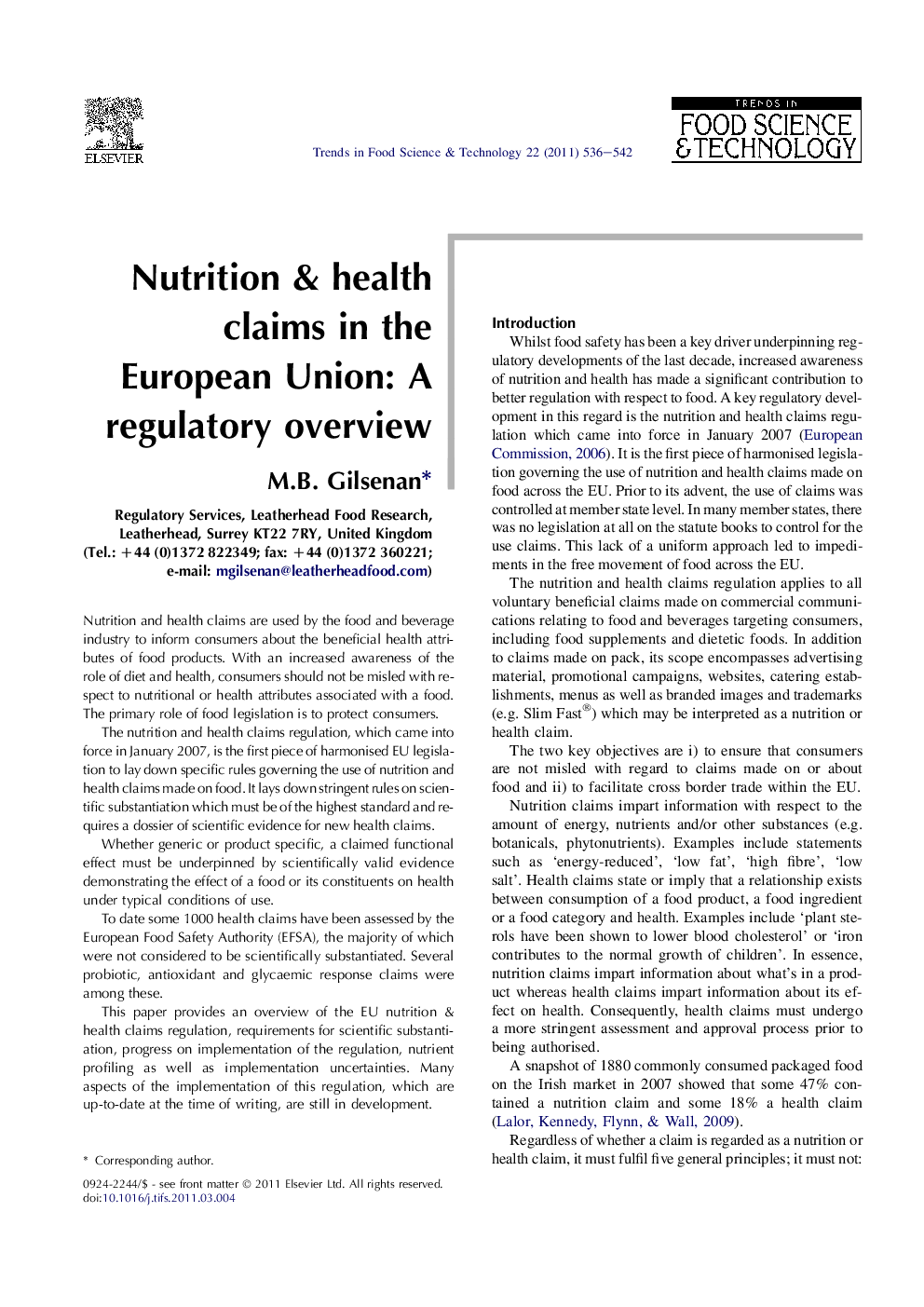| Article ID | Journal | Published Year | Pages | File Type |
|---|---|---|---|---|
| 2098958 | Trends in Food Science & Technology | 2011 | 7 Pages |
Nutrition and health claims are used by the food and beverage industry to inform consumers about the beneficial health attributes of food products. With an increased awareness of the role of diet and health, consumers should not be misled with respect to nutritional or health attributes associated with a food. The primary role of food legislation is to protect consumers.The nutrition and health claims regulation, which came into force in January 2007, is the first piece of harmonised EU legislation to lay down specific rules governing the use of nutrition and health claims made on food. It lays down stringent rules on scientific substantiation which must be of the highest standard and requires a dossier of scientific evidence for new health claims.Whether generic or product specific, a claimed functional effect must be underpinned by scientifically valid evidence demonstrating the effect of a food or its constituents on health under typical conditions of use.To date some 1000 health claims have been assessed by the European Food Safety Authority (EFSA), the majority of which were not considered to be scientifically substantiated. Several probiotic, antioxidant and glycaemic response claims were among these.This paper provides an overview of the EU nutrition & health claims regulation, requirements for scientific substantiation, progress on implementation of the regulation, nutrient profiling as well as implementation uncertainties. Many aspects of the implementation of this regulation, which are up-to-date at the time of writing, are still in development.
